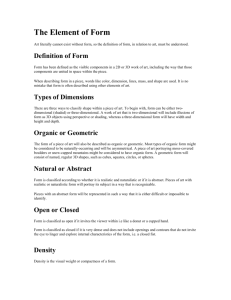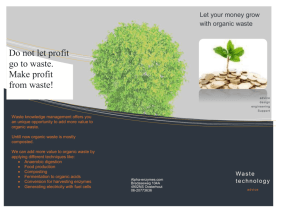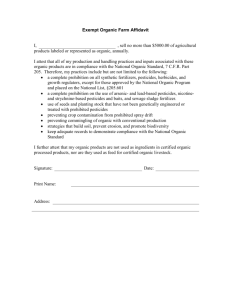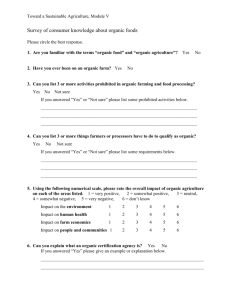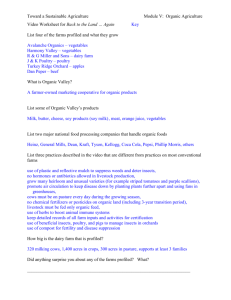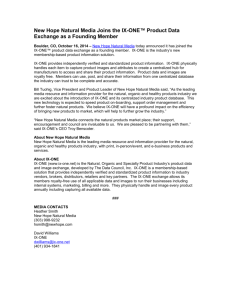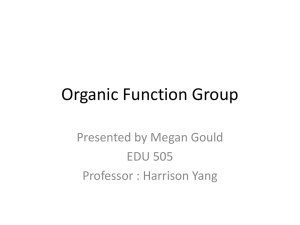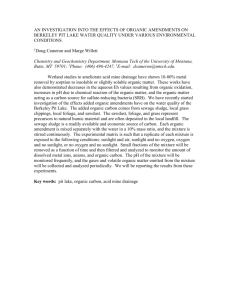organic growth - business-and-management-aiss
advertisement
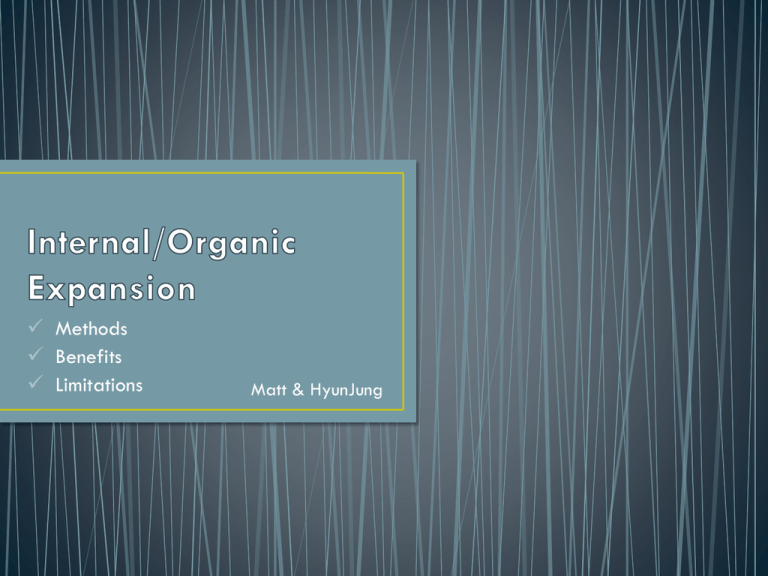
Methods Benefits Limitations Matt & HyunJung • Organic growth: • “Organic growth occurs when a business grows internally, using its own resources to increase the scale of its operations and sales revenue. Internal growth is typically financed through the profits of the business.” (p.119) • Economies of scale: • “… lower average costs of production as a firm operates on a larger scale due to an improvement in productive efficiency” (p.112) • Diseconomies of scale: • “… the result of higher unit costs as a firm continues to increase the size of its operations, i.e. the organization becomes outsized and inefficient and average costs therefore begin to rise.” (p.115) • Changing price • If there are only a few substitutes for a firm’s products, then the business will earn more sales revenue by raising prices. • Advertising and promoting • If the customers are more informed, remained or persuaded about the information and benefits of products, people will buy more. • Producing improved or better products • Such as innovation, new design of products, business can produce products improved. • Selling in different location(placement) • If a product is widely available, customers are more likely to make a purchase • For example, Coca-Cola is widely available throughout the world in different places, such as supermarkets, restaurants and cinemas. • Offering credit payment terms to customer • For the purchase of expensive products such as motor vehicles, allow customer to ‘buy now but pay later’. However, the firms need to be careful about offering too much credit as this will affect their cash flow position. • Increasing capital expenditure(investment) • It can be formed in expanding of business in new location and technologies to productivity • Improving training and development(T&D) • It can help to make staff more confident and competent in their jobs, but it can also help to motivate the workforce as they feel more valued by the employer. • Better control & coordination • Organic growth methods allows firms to keep control, external methods may lead to loss of control or ownership • Relatively inexpensive • Main source of growth from retained profits • May be a need to raise interest-bearing capital, but less risk with organic growth as amount of capital involved lower than needed for external • High cost of external growth makes organic only suitable method of business expansion • Maintains corporate culture • Mergers & acquisitions face often face problem of two different cultures join in a new company • Internal growth cancels this problem out no culture clash • Diseconomies of scale • Higher unit costs of production may be due to internal&external growth. Internally, hierarchical structures may increase, cause communication problems&slow decision-making with growth of firm • Overtrading • Describes business “growing beyond its means” • E.g. firm may take on too many orders, unable to control costs/manage HR as result • A need to restructure • Firm grows necessity to change management+personnel sturcture • E.g. sole trader may be able to control&coordinate business easily but if it grows to multinational company, organizational structure must change • Restructuring time, effort, money • Also entails training, retraining, updating of skills. • Communication will require further care due to larger number of peopl in organization • Dilution of control & ownership • If firm changes legal status to grow, original owners must share decisionmaking with new owners. • Process lengthened with more owners, conflict more likely between shareholders • Specialist managers hired as firm&workforce expands requires delegation of decision-making powers to these managers reduces original owners control



